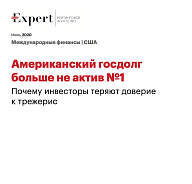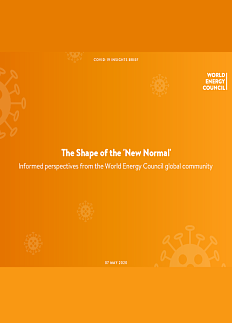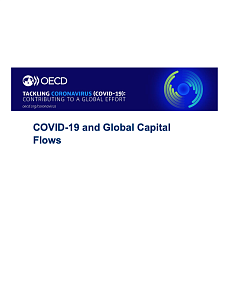Unlike the European sovereign debt, the US sovereign bonds are still traded at positive yield. However, when investing in these securities, does not give investors the opportunity to earn. The effective yield of the US sovereign bonds with 3-month to 5-year maturity with inflation at 1.9 percent was negative over the last decade. Only 10-year and 30-year securities had effective positive yield, with their nominal yield at 2.4 percent and 3.2 percent respectively.
Inflation expectations set by the market for a 30-year horizon have declined from 1.8 percent in winter 2020 to 1.6 percent at the moment (to 1.3 percent for 10-year horizon). The 30-year bonds is at 1.5 percent (10-year bonds — 0.7 percent), which gives investors no hope of earning. The yield on 30-year bonds was 2.2–2.4 percent, which still made it possible to expect a real yield of at least 0.4–0.6 percent, but such a result is now unattainable.
The U.S. federal debt totaled 650 percent of the budget revenues (or 105 percent of GDP) by the end of 2019. It is one of the world’s highest indicators and it far exceeds the limit values established by the international institutions. With such federal debt volume and chronic deficit, other countries would find themselves in default — the examples can be seen in the table. Meanwhile, the U.S. federal debt has little chance to reduce due to the severe economic crisis hit in 2020.
The substantial deficit of the US federal budget, which may reach 20 percent of GDP this year and remain at a high level in the next 1-2 years, will lead to the surplus of the new US Treasury bonds. In that case, the crowding out effect (the reduction of private investment caused by the rising government expenditures, and therefore, the growth of the government borrowings and rate) may entail the devastation on the market in 2020, excluding almost any corporate sector borrowings, which will hit the economy.






